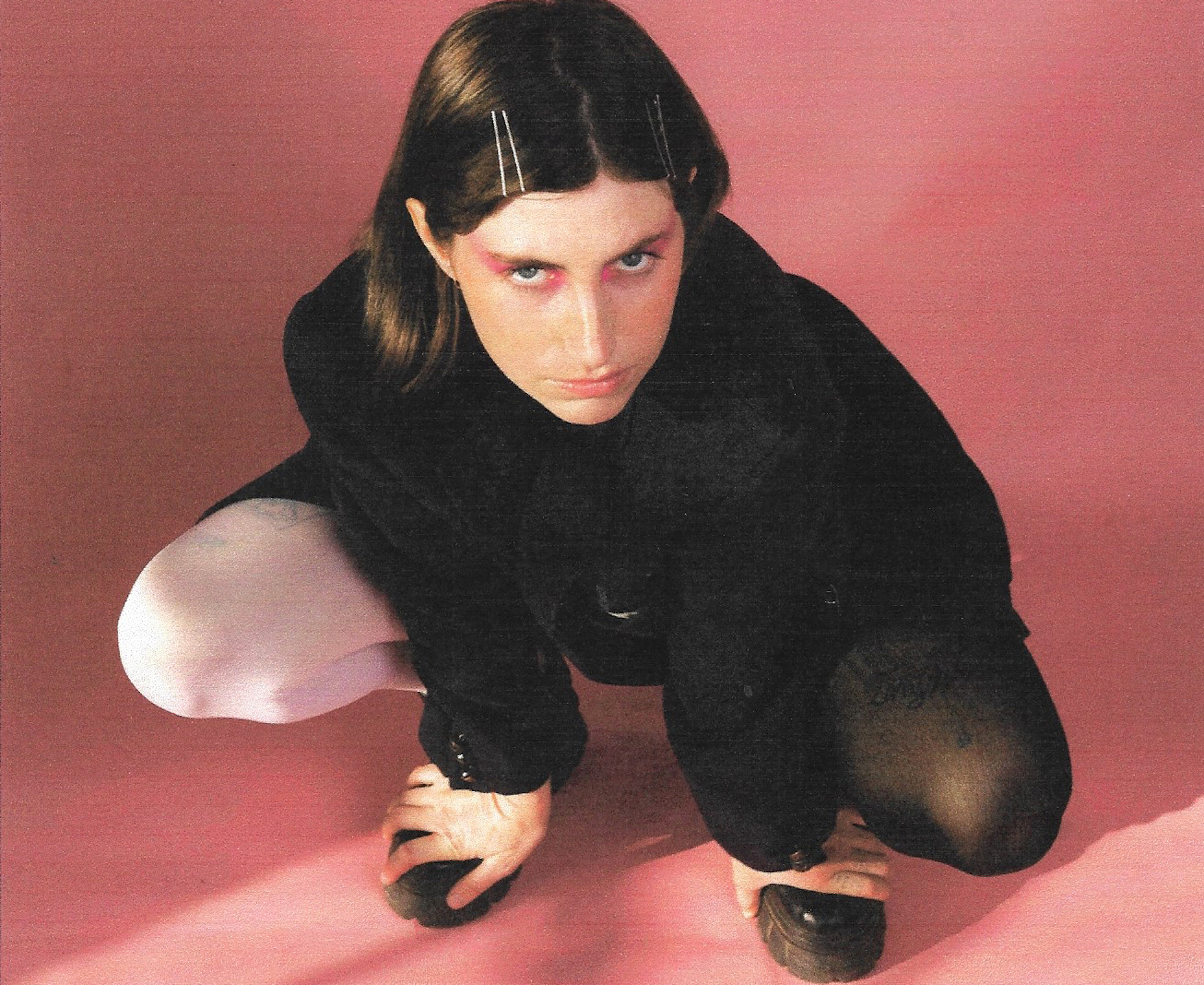On Show Me How You Disappear, Jilian Medford’s third full-length as IAN SWEET, she’s the most unguarded she’s ever sounded on an album, like we’re in the room with her while she’s recording. On 2016’s Shapeshifter and 2018’s Crush Crusher, her vocals are caught in the undertow of electric guitar distortion or tangled in reverb; even when her voice is clear, which is often the case on the latter, her vocals feel far away, or ghostly like she’s caught between two realms. Over Zoom from her house in LA, she admits that she usually wants her vocals lower in the mix. “I’ve always been super nervous about having my vocals at the forefront,” she says.
Show Me How You Disappear is her strongest project to date, allowing equal room for this new clarity and the cataclysmic crash of distortion frequently heard on her previous albums. Even then, these songs feel more balanced and free. Each one is a momentous wave, drawing inspiration from her favorite band, Coldplay, who are well-versed in “the big finale” as Medford puts it. “They don’t leave anything out. They would give it all with every song.” And as IAN SWEET, Medford similarly puts her whole being into these tracks. She morphs into the elements (“Dirt”) and weapons (“Sword”) at the behest of exploitative bystanders. From its opening moments, Medford is remembering how to live. “My psychic told me I’d die / Did I forget or was I always knowing?” she sings on the opener “My Favorite Cloud.”
The songs started to come together at the beginning of 2020, but Medford had no idea she was making an album—she wasn’t even signed to a label—and was incredibly depressed. In January, right before the pandemic fully hit, Medford checked into an intensive outpatient therapy program (two months, five days a week, six hours a day), which is where the majority of the album was written. The songs on Show Me How You Disappear were mostly taken from the daily journaling sessions that were a part of her therapy regimen. “I wasn’t able to, like, sugarcoat anything,” she says of her poignant lyricism. As opposed to previous dedicated songwriting time, Medford’s journaling was a detailed reflection of trauma and deluge of emotions. “It was like something that morning was getting validated,” she says. “It was basically somebody analyzing the song right there with you.
“That was different for me because I usually don’t write lyrics first. I write it all together, like I have my guitar and I’m in my room. I do, like, a mumbling lyric thing,” she explains. “Later on at night I’d open up the journal that I had something written in and find whatever felt good with the guitar part I was playing at the time. That’s how these songs came together. It was much more of a natural process just because …”—she pauses for a few seconds to rethink her phrasing—“Not ‘natural,’ but I was much more present with it. I would then evaluate my emotions later that day all day long.”
“The album is a lot of sadness, but mixed with clarity about the sadness. Finally seeing it for what it is and not trying to hide from it or run away.”
Medford also opened herself up to a new way of recording and producing an album. Show Me How You Disappear was a pop experiment of sorts. There are five different producers credited: Will Van Boldrik, deadmen, Andrew Sarlo, Daniel Fox, and Andy Seltzer—all the right people to push and foster her confidence. “You can hear a clear line throughout,” she says. “Because I’m more confident about these songs and my emotions that played into writing these songs. I’m like yeah, let’s have people hear this in full. I want people to understand.”
While chatting with Medford there’s an undercurrent of unease, maybe nerves, when she references the album’s sadness. During our chat, she’s extremely forthcoming and buoyant. I point out the incongruity of her seeming to be in a great place, but talking about an album that documents personal darkness. “The album is a lot of sadness, but mixed with clarity about the sadness. Finally seeing it for what it is and not trying to hide from it or run away.”

There are several moments on Show Me How You Disappear that feel like soundtracks for someone who sees the world through new eyes. Medford’s voice feels like it burst through a tidal wave of guitars on “Sing Till I Cry.” She sings about staring at the sun and the resulting temporary blindness. “I’ve never felt more alive / Knowing I can’t see a thing.” It’s a melancholic brightness, like waking up from a dream and remembering where you are, head held high anyway. Show Me How You Disappear is a siege of emotion, of knowing too much pain and fighting against that knowledge.
On the title track, Medford asks for an easy way out. “That song is heavily, heavily based in a lot of trauma I had with an ex-partner. That song really encompasses what I was feeling with the trauma,” she says. “[It’s] me being like, if you just show me how you leave and walk away, out of my life, like you never existed…this would be so easy for me. A lot of the song is ‘I deserve to be happy. This isn’t something I deserved to go through,’” she says.
“When you go through a traumatic experience, I don’t think you’re ever going to be like, ‘Yeah that was totally fine!’ You’re not going to get over it. But you are going to heal from it in ways.”
She tells me about a conversation she had with a friend who told her, “It’s never going to go away. You’re never going to get over it. It might get easier, but you’re never going to get over it,” she says. “That hurt me because I want to get over. I should be able to,” she says, her voice speeding up. “But that’s true. When you go through a traumatic experience, I don’t think you’re ever going to be like, ‘Yeah that was totally fine!’ You’re not going to get over it. But you are going to heal from it in ways.”
Show Me How You Disappear is a collection of succinct, hazy pop songs that are as grounding as a stress ball. Her mantra-based songwriting pairs well with the album’s heavy rhythmic repetition. At times, these moments of growth are painful and full of yearning (“Get Better”) while others capture the moment when the tide calms (“I See Everything”). This album finds Medford in the process of pushing against the confining walls until she finally breaks through.
“Every other record I’ve done I’ve been like, ‘Yeah I’m good now. I was depressed, but I’m good now.’ I was like, what? I’m still in the thick of it every time. I didn’t ever get the help I needed. I really like this record because I’m a happier person. I’m more proud of myself for coming out on the other side. And I’m like ‘You did it!’” she laughs. “If I ever listen to the songs from the record, I don’t feel cringe,” she shivers. “I used to feel like that with my old music. I would be like, ‘Ugh, cringe,’ because I’m actually not any better and I’m pretending that I am or something. This record…”—she trails off again and then affirms—“I’m seeing myself in a whole new way that I haven’t for 27 years. Everything is new and everything is shiny,” she chuckles. FL








